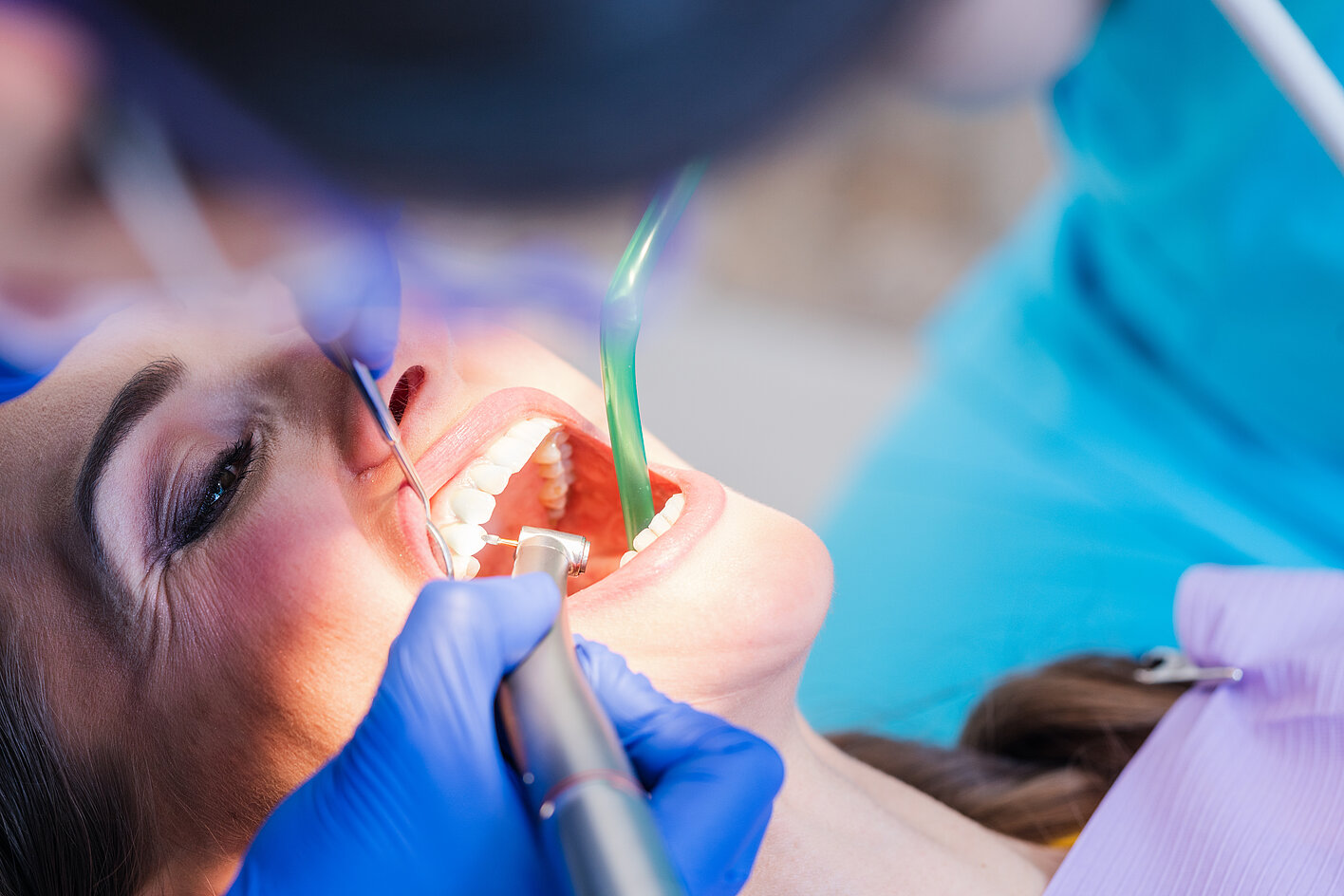
Healthcare Services
Few countries in the European Union spend as much on healthcare as Austria. Thanks to mandatory insurance, around 99.9% of the population is insured.
General Information
This means that there are no increased tariffs or exclusions due to pre-existing conditions or lifelong caps on insurance cover.
With 552 practicing doctors per 100,000 inhabitants, access to medical help is guaranteed everywhere and at all times.
The comprehensive insurance coverage includes high-quality treatments, from flu-like infections to heart surgery, as well as free annual check-ups for adults and excellent support for expectant mothers (see pregnancy).
With private supplementary insurance, you have the option of consulting private doctors, with potentially higher costs being covered in full or in part in certain cases, depending on your insurance. In some cases, the employer offers private supplementary insurance as a benefit for employees. However, anyone can take out private insurance, even if the employer does not offer it.
Further Information
Benefits provided by health insurance providers (German only).
Dentists
For adults, statutory health insurance companies pay for two dental check-ups a year and a dental scaling, i.e. the removal of hard dental plaque.
Every two years, health insurance companies cover the costs of early detection of periodontitis, the so-called periodontal screening index.
Public insurance covers necessary dental expenses for fillings, but not regular oral hygiene appointments. It also covers emergency treatment for pain and root canal treatment or tooth removal. In these cases, anesthesia is included.
Since July 2015, fixed orthodontic treatment for people under the age of 18 has also been covered, provided it falls within the required treatment index. ÖGK pays for dental fillings made of amalgam in the posterior region. White fillings made of plastic are only covered for the front teeth. For posterior teeth, you must pay privately for fillings made of plastic (white fillings) - even if you have a contract dentist.
You can be treated by contract dentists, dentists of choice and in the dental health centers of the Austrian Health Insurance Fund (ÖGK).

In Austria, the free choice of doctor applies: Every insured person and their co-insured relatives can choose the doctor they trust at their own discretion.
Further Information
Further information on dental treatment.
Dental health centers of the ÖGK.
Emergency numbers
- 01
Fire department 122
0-24 o‘clock
- 02
Police department 133
0-24 o‘clock
- 03
Emergency services 144
In acute medical cases, please call the emergency number 144 if a person:
- has had an accident.
- has difficulty breathing.
- is unconscious.
- is in a life-threatening situation.
By dialing 144 (without area code), the nearest rescue coordination center can be reached throughout Austria around the clock, 365 days a year. Depending on the type of emergency, the control center decides which emergency services are sent to the scene.
If you are not sure whether it is an emergency or a minor illness, always dial the emergency number 144.
- 04
Medical service 141
If you need the help of a general practitioner outside of office hours, please call the medical service 141.
This may be the case, for example, if a person
- needs medication,
- needs a prescription,
- needs medical information or
- an examination by a general practitioner is necessary.
The general practitioners of the medical radio service are available on 141 at the following times:
Weekdays from 7 p.m. to 7 a.m.
Weekends: from Friday, 7 p.m. to Monday, 7 a.m. continuously
Public holidays: all day
- 05
Health hotline 1450
The free health hotline 1450 offers medical consulting - around the clock, seven days a week. You will be advised by specially trained staff and the emergency services will be called immediately in an emergency.
Further Information
Find more information on emergency in Vienna here.
Further details on emergency numbers in Austria.
First-Aid
In Austria, every adult citizen is required to provide first aid in an emergency. However, many people are afraid of doing something wrong. There are numerous first aid courses and programmes throughout Austria, e.g. at the following institutions:
- Austrian Red Cross (→ ÖRK)
- Austrian Workers' Samaritan Federation (→ ASB)
- Johanniter-Unfall-Hilfe Austria (→ the Johanniter)
- Malteser Hospitaldienst Austria (→ the Maltesers)
- Rescue or ambulance service of a local authority

Further Information
Emergencies and first aid
Prescriptions for medication
A prescription fee must be paid for each medicinal product that you obtain from a pharmacy or medicine cabinet. The prescription fee is € 7.55 (2025) per packaging unit. If the cost of the medicine is less than the prescription fee, you must pay for the medicine yourself. Over-the-counter medicines, dietary supplements and alternative medicines are not subsidized.
There is a capping on prescription charges; anyone who has already paid two percent of their annual net income for prescription charges in the current calendar year is automatically exempt from prescription charges for the rest of the year. No application is required for this.
Further Information
Further information on prescription fee.
Medical aids and appliances
The Austrian Health Insurance Fund (ÖGK) covers the costs of medical aids and aids such as hearing aids, diabetes supplies, bandages, glasses and orthopedic insoles if you have a doctor's prescription.
Patients generally only pay a co-payment:
- For remedies and aids, you pay 10% of the costs yourself, but at least € 43 (2025 value).
There is no deductible for the following persons:
- Children under the age of 15
- Children who are entitled to an increased family allowance (regardless of age)
- Persons who are exempt from the prescription fee. However, persons who are exempt due to the prescription fee cap must continue to pay a deductible.
- Medical aids that are granted as part of medical rehabilitation.
Further Information
Further information on medical aids and appliances.
Vaccinations
The Austrian childhood vaccination program offers free vaccinations for children and adolescents up to their 15th birthday.
Information on the recommended timing and minimum intervals between partial vaccinations can be found in the vaccination calendar and from doctors.
Vaccination-Checklist
Further Information
Vaccination centers and advice in Austria (German only).
Vaccination calendar for all age groups.
Inpatient healthcare
- 01
Hospital stays
There are just over 260 hospitals in Austria. Around three-fifths of hospitals are responsible for acute care, while around two-fifths provide non-acute care.
Not every patient has to be admitted to a hospital as an inpatient. All acute hospitals have outpatient clinics where patients are examined and treated. They do not stay overnight - unless it is medically necessary. Inpatients are also examined and treated in outpatient clinics.
Emergency and primary care outpatient clinics are increasingly being visited for harmless illnesses. This means that there is much less time available for the care of emergency patients. In order not to jeopardize the care of acutely and seriously ill people, please only visit a primary care outpatient clinic if you cannot reach your family doctor or specialist or if he/she advises you to visit the outpatient clinic directly. If your family doctor is on vacation, a replacement must be offered - this is therefore not a reason for an outpatient clinic visit. You can also contact the health advice hotline 1450.
Patients with social insurance only have to pay one cost contribution per day for a hospital stay in the general fee class, which is determined and collected by the legal entity of the hospital (e.g. municipalities, provinces).
The cost contribution therefore varies from province to province. The cost contribution must be paid for a maximum of 28 days per calendar year. The cost contribution does not include
-
Maternity stays (maternity stays of up to ten days)
-
Stays for the purpose of organ donation
-
- 02
Physical medicine and general rehabilitation
The treatment spectrum of physical therapy is wide-ranging: from acute, inflammatory joint complaints to the treatment of post-traumatic movement restrictions (condition after plaster cast) and chronic degenerative diseases (joint wear and tear, arthrosis).
Diseases of the spine are an increasingly common problem.
The spectrum ranges from group exercise therapy, electrotherapy and manual therapy to individual physiotherapy and medical training therapy. Treatments in this area can be received at various institutions:
-
ÖGK health centres
-
Physical institutes
-
Physiotherapists
-
- 03
Health spa stays
A health cure is an inpatient stay of several weeks (usually three weeks) in a health resort. These are set up for specific illnesses. The purpose of the treatment offered is to sustainably consolidate or improve health, the ability to work or the ability to provide for essential needs.
- An application must be submitted before a stay can be claimed.
- Your attending physician will fill out the "Application for rehabilitation, cure or recuperation stay" together with you.
- The application can be submitted by post, fax or in person at an ÖGK customer service center. In many cases, your attending physician will also submit the application.
Further Information
Here you will find a list of all hospitals in Austria and further information.
Here you will find a list of health centers for physical medicine.
Here you can find more information on spa stays.

